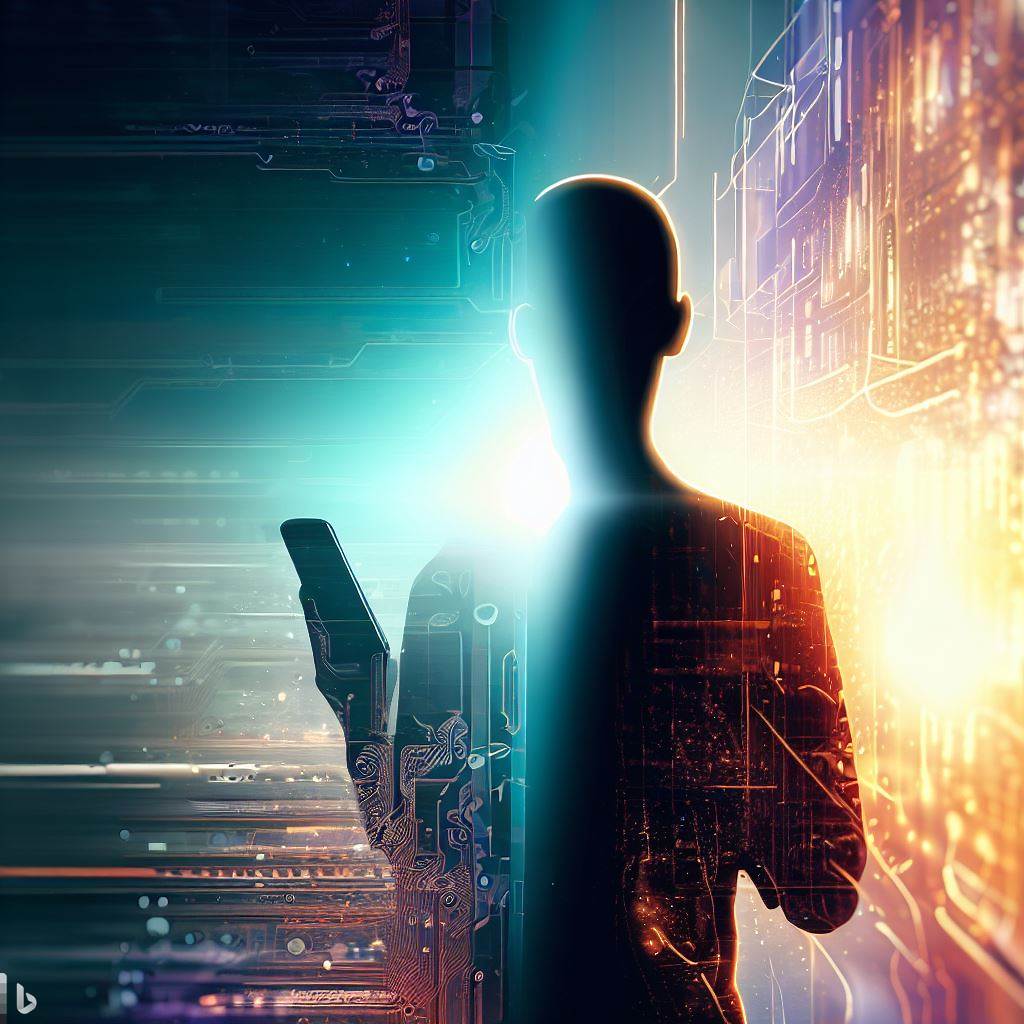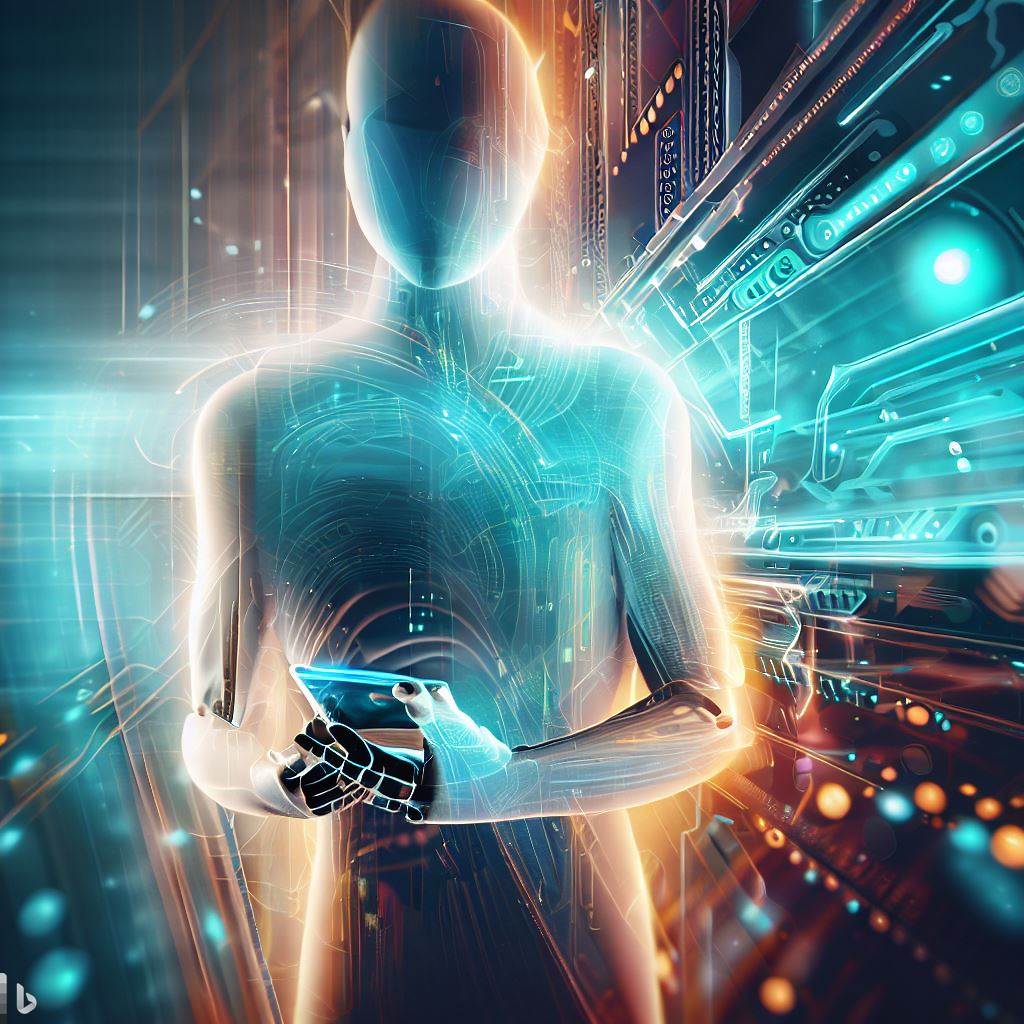when technology and humanity cross: Explore the profound interplay between technology and humanity in the modern era. Delve into the cultural shifts, ethical dilemmas, and collaborative potential as we navigate the crossroads where technology and humanity intersect. Discover how innovations like AI, virtual reality, and green tech are reshaping our lives and shaping the future. When Technology and Humanity Cross brings you insights into the dynamic relationship that’s defining our digital age.
Introduction
In an era marked by rapid technological advancement, the intersection of technology and humanity has become a central theme. As innovative breakthroughs reshape the world around us, the profound effects on culture, society, ethics, and even the very essence of what it means to be human cannot be ignored. This article delves into the multifaceted relationship between technology and humanity, exploring the intricate dynamics and implications of this intersection.
The Evolution of Technology and Society
Throughout history, technology has played a pivotal role in shaping societies. From the invention of the wheel to the advent of the internet, each technological milestone has propelled humanity forward. These evolutionary leaps have not only changed the way we live but have also spurred cultural shifts and new ways of thinking.
Transformative Technologies and Their Impact
The dawn of transformative technologies like artificial intelligence (AI), biotechnology, and nanotechnology has ushered in a new era of possibilities. AI, with its ability to mimic human cognition, is changing industries from healthcare to finance. Biotechnology’s potential to modify genes raises ethical concerns and promises medical marvels. Nanotechnology’s microscopic wonders hold the key to revolutionizing fields like materials science and medicine.
Ethics and Morality in the Age of Innovation
As technology blurs the lines between the real and the virtual, ethical considerations become paramount. The creation of autonomous machines capable of moral decisions poses complex questions. Who bears responsibility when an AI commits an error? How do we ensure that technological progress aligns with our moral compass?

Cultural Shifts in a Tech-Driven World
Technology’s influence extends beyond machinery; it shapes cultures. Traditional practices meet modernity as societies adapt to technological change. The preservation of cultural identity faces challenges in a world increasingly interconnected by digital platforms. The balance between progress and cultural preservation is a delicate one.
Collaborative Intelligence: Humans and AI
The synergy between human creativity and AI’s computational power offers limitless potential. From diagnosing diseases to composing music, collaborations between humans and AI yield remarkable outcomes. But as AI becomes more integrated into our lives, concerns about job displacement and loss of human touch arise.
Connectivity and the Digital Divide
In a world connected to the internet, digital access is crucial. Yet, the digital divide persists, leaving marginalized communities behind. Bridging this gap ensures equal opportunities and prevents the exacerbation of social inequalities.
Education in the 21st Century: E-Learning and Beyond
Technology’s impact on education is profound. E-learning platforms democratize knowledge, making learning accessible to all. Virtual classrooms, interactive simulations, and personalized learning experiences redefine education, necessitating a shift in teaching paradigms.
Healthcare Revolution: From Telemedicine to Nanotech
Healthcare is experiencing a renaissance fueled by technology. Telemedicine brings healthcare to remote corners of the world. Nanotechnology pioneers minimally invasive treatments and diagnostics, revolutionizing patient care.
Sustainable Living: Green Tech and Environmentalism
Technology holds the key to a sustainable future. Green tech innovations mitigate environmental damage and promote clean energy. From solar power to electric vehicles, the marriage of technology and environmentalism drives change.
The Artistic Renaissance: Technology as a Medium
Art evolves alongside technology, with new mediums offering fresh avenues for creativity. Virtual reality, 3D printing, and digital installations push the boundaries of artistic expression, blurring the lines between artist and audience.
Workplaces of Tomorrow: Automation and Job Landscape
Automation and AI reshape the job landscape. Repetitive tasks yield to automation, allowing humans to focus on creativity and innovation. Adapting the workforce to these changes demands reskilling and upskilling.
Privacy and Data Security: Navigating the Digital Realm
As we embrace technology, safeguarding privacy becomes imperative. Data breaches and surveillance raise concerns about personal freedom. Striking a balance between convenience and security remains a challenge.
AI in Entertainment: Redefining Leisure
Entertainment experiences are enhanced by AI-driven personalization. Recommendation systems tailor content to individual preferences. Virtual reality immerses users in alternate worlds, redefining entertainment paradigms.
Urbanization and Smart Cities
Rapid urbanization calls for smart solutions. Smart cities leverage technology to optimize resource usage, enhance public services, and improve the quality of urban life.
Unveiling Virtual Reality and Augmented Humanity
Virtual reality and augmented reality revolutionize how we interact with the digital world. Virtual spaces and augmented experiences merge with reality, offering endless possibilities in fields from gaming to education.
Technological Mediation of Relationships
Technology transforms human relationships, enabling global connections. Social media, video calls, and online communities reshape communication dynamics. Balancing virtual interactions with real-world connections becomes an art.
Exploring Space: Humanity’s Tech-Infused Ambitions
Technology propels our exploration of outer space. Robotic rovers and space probes unveil celestial mysteries. Human missions to Mars and beyond pose engineering challenges and ignite our collective imagination.
Emotional and Social Impacts of Virtual Interaction
Virtual interactions evoke real emotions. From online friendships to digital empathy, the virtual realm sparks emotional connections, blurring the lines between physical and digital realities.
The Dark Side of Progress: Addressing Tech Addiction
Tech addiction emerges as a modern concern. From social media scrolling to video game obsessions, striking a healthy balance between screen time and life offline is crucial.
Preserving Identity in a Digital World
Digital footprints become indelible markers of our existence. The challenge lies in preserving personal identity amid an increasingly digital landscape.

From Cryptocurrency to Cashless Economies
Cryptocurrencies challenge traditional financial systems. Blockchain technology promises secure transactions and decentralized systems, with the potential to transform economies.
The Intersect of Biotechnology and Being Human
Biotechnology raises ethical dilemmas as gene editing techniques advance. From designer babies to enhanced abilities, humanity grapples with the implications of playing “creator.”
Futuristic Visions: Utopia vs. Dystopia
The future’s potential unfolds in diverse scenarios. Will we realize utopian ideals of abundance and harmony, or will dystopian fears of surveillance and loss of humanity take hold?
Bridging the Gap: Tech Literacy and Inclusivity
Digital literacy becomes a necessity for participation in modern society. Ensuring inclusivity means providing access to technology and the skills to navigate it.
FAQs: when technology and humanity cross
What does “When Technology and Humanity Cross” mean?
When Technology and Humanity Cross” refers to the point at which technological advancements and human society intersect, leading to significant impacts on culture, ethics, relationships and various aspects of our lives.
How does technology influence our culture?
Technology shapes culture by introducing new ways of communication, artistic expression, and social interaction. It also challenges traditional norms and practices, leading to cultural shifts and adaptations.
What is the significance of ethics in the age of innovation?
As technology advances, ethical considerations become crucial. Questions arise about the moral implications of AI decisions, privacy concerns, and the responsibility for the actions of autonomous machines.
How does technology impact education in the 21st century?
Technology revolutionizes education through e-learning platforms, virtual classrooms, and personalized learning experiences. It enables accessible and interactive learning beyond traditional classroom settings.
What are the implications of AI and automation on the job landscape?
AI and automation transform the job landscape by automating repetitive tasks and creating new opportunities in innovative fields. This transition requires individuals to upskill and adapt to changing demands.
Conclusion
The crossroads of technology and humanity shape our world in ways both inspiring and challenging. As we navigate this ever-evolving relationship, embracing the possibilities while acknowledging the ethical, social, and cultural implications will define the path forward. In embracing innovation, we must remember the essence of what makes us human and ensure that technology enhances, rather than diminishes, our shared human experience.


















